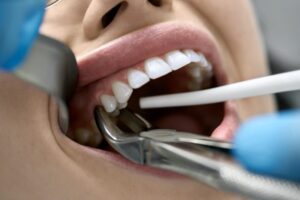
Tooth extraction is a common dental procedure that involves removing a tooth from its socket in the jawbone. While the idea of losing a tooth may sound intimidating, there are times when extraction is the best, and sometimes only, option for maintaining your overall oral health. Dentists always aim to save natural teeth whenever possible, but when a tooth becomes more of a liability than an asset, removal may be necessary. Here are some of the most common reasons for tooth extraction and what you should know about them.
Severe Tooth Decay or Damage
One of the most frequent reasons for tooth extraction is extensive tooth decay. When a cavity is left untreated, it can reach the inner pulp of the tooth and cause infection. If the damage is too severe for a filling, crown, or root canal to fix, extraction may be the only option to prevent the infection from spreading.
Teeth that are cracked or broken below the gumline may also be beyond repair and require removal.
Advanced Gum Disease
Gum disease (periodontitis) can damage the tissues and bone that support your teeth. As the disease progresses, teeth can become loose due to loss of bone support. If a tooth becomes too unstable, extraction is often necessary to preserve the health of the surrounding teeth and gums.
Overcrowding or Orthodontic Treatment
In some cases, teeth may need to be removed to create space for orthodontic treatment. This is especially common when the mouth is overcrowded, and there isn’t enough room to align the teeth properly. Removing one or more teeth allows braces or aligners to move the remaining teeth into better positions.
Impacted Teeth
A tooth is considered impacted when it doesn’t fully emerge from the gums or is trapped against another tooth. This is most commonly seen with wisdom teeth. Impacted teeth can cause pain, infection, and damage to neighboring teeth. Removing them proactively can prevent these complications.
Infection or Risk of Infection
Sometimes, a tooth may need to be extracted if there’s a high risk of infection, especially for people with weakened immune systems. This could be due to chemotherapy, organ transplants, or certain health conditions. In such cases, a dentist may recommend extraction to avoid further complications.
Trauma or Injury
Accidents happen, and sometimes a tooth is knocked out, fractured, or severely damaged beyond repair. If a restorative procedure isn’t possible, extraction becomes the next best step to alleviate pain and restore oral function.
While losing a tooth is never ideal, sometimes it’s the smartest decision for your long-term dental health. Fortunately, modern dentistry offers many ways to replace extracted teeth, such as dental implants, bridges, or dentures. If your dentist recommends an extraction, know that it’s done with your best interest in mind: to relieve pain, prevent infection, or make way for a healthier smile.
About the Author
Dr. Henry Diep is a graduate of Midwestern University in Glendale. He stays current with the latest developments in dentistry through his membership in the California Dental Association. If you’re in need of a tooth extraction, trust Dr. Diep and our team of experts to provide you with the very best care. We have sedation options available for anxious patients, and we will maximize your dental benefits to give you the most affordable treatment possible. Schedule your appointment today online or give us a call at (510) 314-8426.
